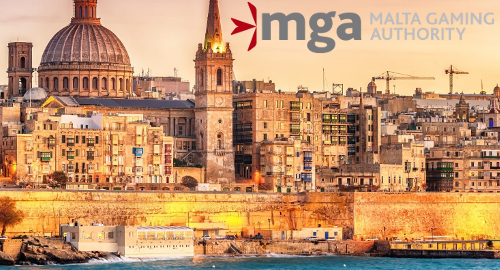 Malta’s gaming sector was the fourth-largest contributor to the local economy in 2019, although those contributions will likely take a step back in 2020 due to the COVID-19 pandemic.
Malta’s gaming sector was the fourth-largest contributor to the local economy in 2019, although those contributions will likely take a step back in 2020 due to the COVID-19 pandemic.
On Tuesday, the Malta Gaming Authority (MGA) released its 2019 Annual Report and Financial Statements, which put the gaming sector’s estimated contributions to the local economy at a gross value of €1.56b, up 9.6% from 2018’s figure, which was itself up nearly 12% from 2017. Gaming accounted for 13.3% of the overall economy last year.
Total gaming sector full-time employment was up 9.1% to 7,417, despite land-based gaming jobs falling by 20 to 824. Total employment related to the gaming sector hit 11,747, equal to around 4.8% of the overall economy. The online sector was comprised of 64% of non-Maltese in 2019, down 3.3 points year-on-year.
There were 294 companies holding a total of 298 MGA-issued gaming licenses at the end of 2019, up from 283 companies holding 286 licenses in 2018. The MGA received 89 license applications in 2019, of which 44 were either rejected or withdrawn.
The MGA also cancelled 14 licenses, suspended 11 others, issued 20 warnings and 89 Notices of Breach, resulting in 23 administrative fines imposed on operators.
The MGA conducted 1,300 criminal probity screening assessments in 2019, while its Fit & Proper Committee deemed 15 individuals and companies to have fallen short of the MGA’s probity standards, primarily due to shortcomings in the areas of anti-money laundering and terrorism financing compliance.
Type 1 gaming – slots, table games and other casino products – accounted for 56% of total B2C net gaming revenue in 2019, up from 55.4% in 2018, with three-quarters of Type 1 revenue coming via slots.
Type 2 gaming (sports betting) accounted for 36.3% (-2.7) while Type 3 (primarily poker but also exchange betting, bingo and lottery betting) rose 2.2 points to 7.7%.
MGA-licensed online operators reported active player accounts rising 12.6% year-on-year to 20.4m, thanks to new active accounts rising 11.7% to 13.8m.
In May, the MGA published a survey of its licensees’ expectations for how COVID-19 would impact their operations. Most B2C operators expect 2020’s gross gambling revenue to fall 12% year-on-year, while B2B firms expect a 20% decline. All licensees said they expect to reduce unnecessary spending until they have a better sense of COVID-19’s long-term impact.
The MGA’s 2019 report was largely silent on the regulator’s progress in crafting rules to allow its licensees to acceptvirtual financial assets (VFA) for wagering purposes. Earlier this month, the MGA released amendments to its Sandbox Regulatory Framework, but it’s clear this train has a long way to go before it arrives at the station.





